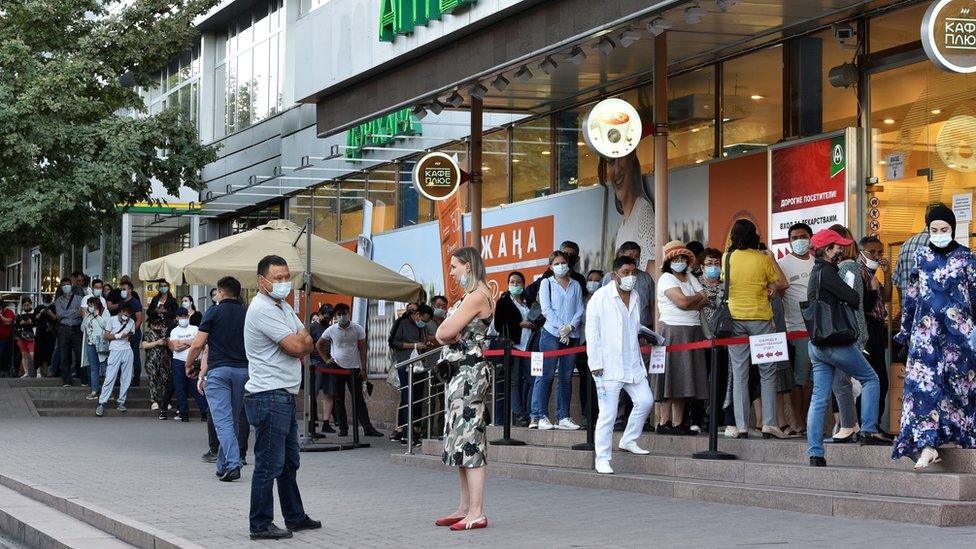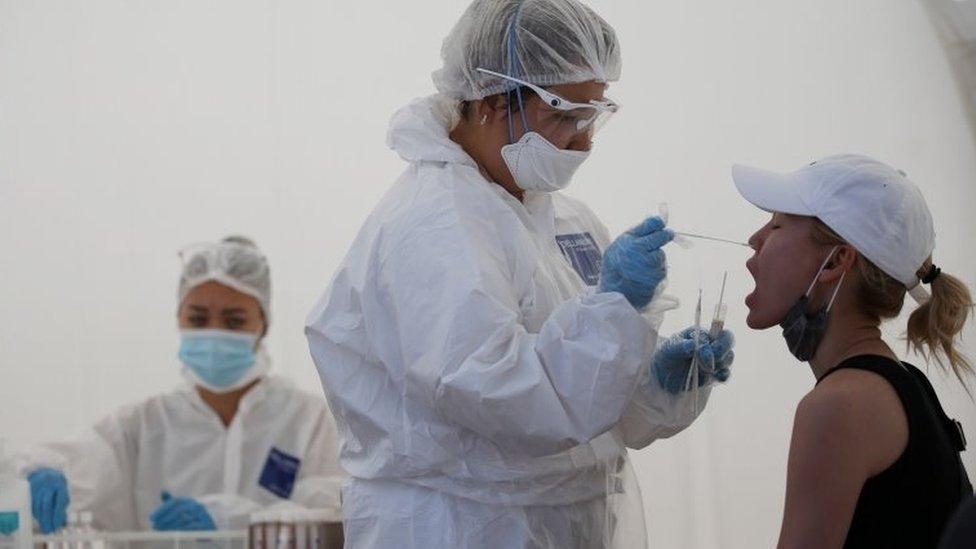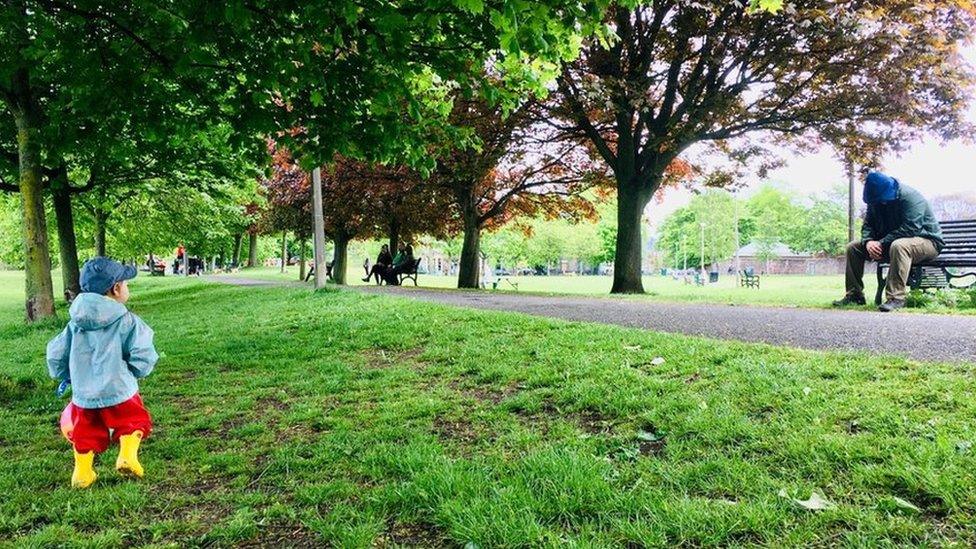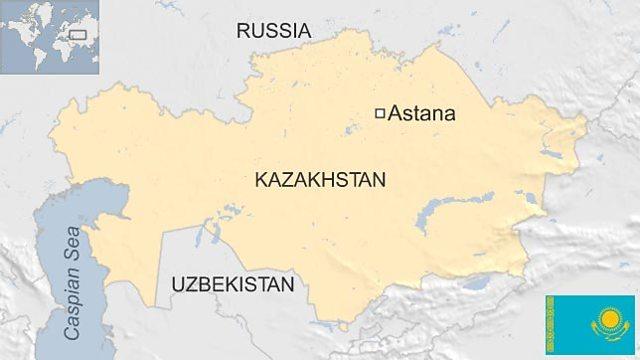Coronavirus: Kazakhstan denies 'unknown pneumonia' outbreak
- Published

Queues at a pharmacy in Almaty. The country has officially recorded 264 virus deaths
Kazakhstan has denied a report published by Chinese officials alleging that the country is experiencing an outbreak of an "unknown pneumonia".
The Chinese embassy in Kazakhstan on Thursday warned its citizens in the country that the "pneumonia" was potentially deadlier than Covid-19.
The health ministry of Kazakhstan said on Friday the report was "not true".
Kazakhstan recently re-imposed a nationwide lockdown following a rise in coronavirus cases.
According to Kazakhstan's health ministry, the country had seen about 55,000 cases and 264 deaths by 10 July.
Kazakhstan and other Central Asian countries have also faced accusations they are underreporting significant second waves of coronavirus infections by classifying many as pneumonia.
On Friday the World Health Organization said the pneumonia reported in Kazakhstan was "on its radar" and could be Covid-19.
"The upward trajectory of COVID-19 in the country would suggest that many of these cases are in fact undiagnosed cases of COVID-19," said Mike Ryan, head of the WHO's emergencies programme.
The statement published by the Chinese embassy on Thursday said 1,772 people had died in the first half of 2020 and "628 in June alone" from the reported pneumonia outbreak.
It said the outbreak had taken hold in three provincial cities - Atyrau, Aktobe and Shymkent - and that Chinese nationals were among those who had died.
In a statement published on Friday, Kazakhstan's health ministry acknowledged the presence of "viral pneumonias of unspecified etiology" but said the warning issued by the Chinese embassy did "not correspond to reality".
The ministry acknowledged that it had classified as pneumonia cases where coronavirus symptoms were present but the patients tested negative, arguing that the practice fell in line with World Health Organization (WHO) guidelines.
Health Minister Aleksey Tsoy told a press briefing on Thursday that pneumonia fatalities had risen from 1,172 in the first six months of 2019 to 1,780 during the same period this year. And the number of registered pneumonia cases increased by 50%, he said.

Kazakhstan recently reimposed nationwide lockdown measures
Medical practitioners and family members of victims in Kazakhstan told the BBC's Abdujalil Abdurasulov they believed the increased numbers of pneumonia cases were connected to the coronavirus but were going undetected because of low-quality testing or no testing at all.
Venera Zhanalina, whose father died three days after being admitted to hospital with coronavirus-like symptoms, told the BBC: "In the death certificate, it said pneumonia as the cause. But we don't even know if they tested him on coronavirus."
Aida Jexen, 38, said she had fallen sick at the end of June, testing positive for coronavirus. But a week later, when she was receiving treatment at a hospital and took a test again, it was negative - leading to a diagnosis of pneumonia.
"I asked doctors what was the reason, they said that during the first days they took a nasal swab and the virus was still there," she said.
"Later it went down in my lungs and in order to detect it, they needed to take sputum samples. But they don't do sputum sampling as they don't want to be bothered with it."
A medical worker who requested to remain anonymous told the BBC that her coronavirus tests had come out negative twice. Yet she had presented several symptoms of coronavirus and her computer tomography had shown clear signs of the virus.
Because her tests were negative she was diagnosed with pneumonia.
"They do it [to lower the total coronavirus figures] because they don't want to be in the first place for this disease," she said. "It's much easier to change statistics than to fight coronavirus."
But in a statement issued to the the AFP news agency on Friday, the WHO said Kazakhstan was classifying pneumonia cases according to the organisation's codes.
"This suggests [the pneumonia cases] do not classify as emerging unknown disease. We are in the process of verifying with the ministry the Covid-19 confirmed cases," the WHO statement said.
The WHO website refers to one such code "U07.2 COVID-19, virus not identified". This code is used when there is "clinical or epidemiological diagnosis of Covid-19 [but] where laboratory confirmation is inconclusive or not available."

RISK AT WORK: How exposed is your job?
EXERCISE: What are the guidelines on getting out?
THE R NUMBER: What it means and why it matters
RECOVERY: How long does it take to get better?

- Published7 June 2020

- Published24 March 2023
